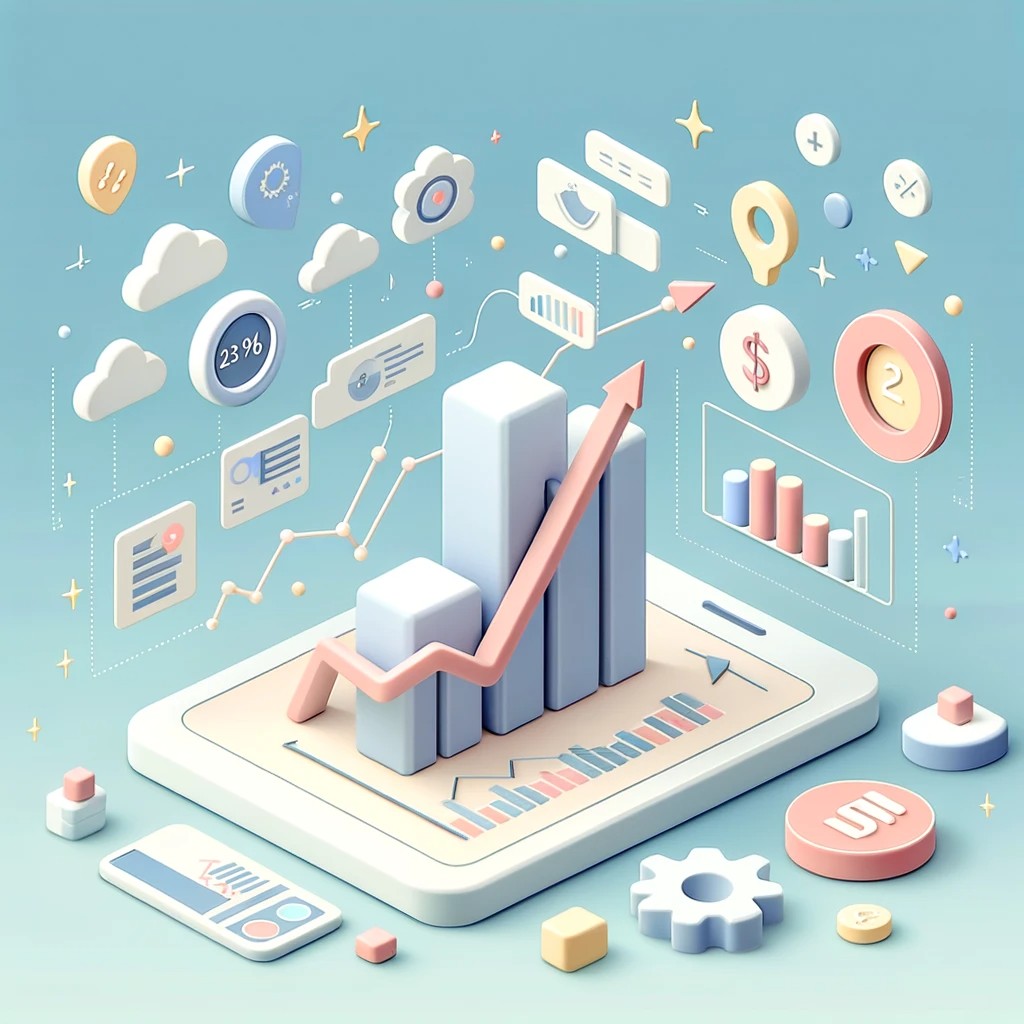Exploring Global Economic Trends: Argentina's Bold Moves & World Markets
Watch Podcast episode here: https://youtu.be/oxtabeDq88M
Introduction: In our latest podcast episode, recorded on December 27th, we explored the dynamic shifts in the global economy, focusing primarily on Argentina's recent economic policies under its new leadership. The discussion, led by our esteemed guest Stean, provided a thorough analysis of the complex interplay between national decisions and global economic trends.
Argentina's Economic Overhaul: The heart of our discussion centered on Argentina's daring economic maneuvers, particularly in the face of potential hyperinflation. Stean highlighted the new president's significant policy shifts, including a staggering 118% devaluation of the Argentine peso and a bold modification of 366 laws through a presidential decree. These moves, while controversial, signal a drastic departure from previous policies and aim to stimulate long-term economic growth. However, they also raise concerns about their impact on the middle class and the potential increase in poverty levels.
The Ripple Effect on Global Economy: Argentina's decisions have broader implications for the global economy. Our podcast delved into how these policies could lead to prosperity or hardship, not just within Argentina but also in the global context. The discussion emphasized the need for sustainable economic strategies that consider both immediate impacts and long-term outcomes.
US and European Economies – A Comparative Outlook: A significant portion of our conversation was dedicated to examining the economic scenarios in the US and Europe. While the US seems to be navigating through its economic challenges, Europe, and particularly Germany, faces a more precarious situation. The interdependence of European economies, coupled with external factors like oil and gas prices, paints a complex picture of potential recession and inflationary pressures.
Predictions for 2024: Looking ahead, the podcast presented predictions for 2024, with a particular focus on the US economy's role as a global economic barometer. The discussion touched upon the various phases of the economic pivot, the potential for a US recession, and the implications for the global economy. The role of China's economic reporting and global conflicts also emerged as critical factors that could shape the economic landscape in 2024.
Conclusion: Our insightful podcast episode not only shed light on Argentina's bold economic strategies but also framed these within the broader context of global economic trends. As we navigate through these turbulent times, understanding these complex interconnections becomes crucial for predicting future economic scenarios. Stay tuned to our blog for more in-depth analyses and discussions on global economic trends and policies.
Full script below
well hey everyone uh today is uh December 27 and we are very excited to have steon again on this uh podcast today so let's talk about our um state of the economic uh uh state of the economy global economy and so yeah we can get back to uh all different aspects and all different countries that are being affected by the global economy and thanks to stean for joining again um so yeah this podcast is provided byi and we're happy to cover and with uh expertise of a stean uh and uh yeah we'll try to cover most of the
interesting topics but I mean the main topic that we wanted to cover Steven um is from Argentina and everyone knows what's happening in Argentina and how it's being affected and how the New Economic policies are being implemented in Argentina with the uh election of the new president uh so here's the question for you do you think this is a real big turn or more more of like a uh circus no I think my question really a real big term um this guy is is taking he making some decisions um that could really change the the country but the
question that everybody's asking is I mean is this sustainable right I mean can can this guy keep with this uh with all these decisions through through or a long time right because um most of these decisions affect seriously uh the middle class right so um inflation will grow exponentially during the the following months that's for sure we are talking about more or less between 20 and 30% of monthly inflation so that's third month uh so we are really close to the 50% that it's the the diff the the the the
number that most economies say that it's hyperinflation so we are really close to hyperinflation and and I mean prices will go up so and most probably is that salaries will not go up that way right so um now in Argentina we have like onethird of the of the working class is poor right so in Argentina you can have a job and still be poor so it's onethird of the working class um and the problem with this with this uh decisions is that that will probably increase poverty within middle class so in the long term
if this if this guy if if m is the president can um hold there can can hold in in the me in the the decisions and and can and people is willing to to support or or or to to back up their president despite the the loss of this of the purchase power in the long term this could turn out well in the short term it's going to be really really hard really hard for people so um and also for companies I mean the people we have less money to spend so sales will drop all the country all across all all the the the different
products I mean everything is going to fall so um so I mean the problem is is the is or the question here is is going to is people going to support the people going to be able to survive to this process if the answer is yes then Argentina is going to a deep change and and probably a a bright future if the answer is no we could have very um very severe issues in in terms of social protest and and and that for the for the for the next month right so um that's the question right I mean are we going to be able to to keep up with with this I mean
that that's that's the the question here actually let's step back um so I think we kind of went too far ahead just discussing the like uh what's going to be what are going to be the consequences of the situation but let's actually discuss what actually he did it's been two weeks okay so he did uh during these two weeks he did like three things first one he um uh devaluated our our currency like 118% something like that so the US Dollars the US dollar went from something around 350 or 360 pesos to 820
pesos in one day so that that was the first one um the second decision was to um contrary to to what every to what everybody thinks um that that is to to reduce inflation um he decided to lower the interest rates um that has a reason and is that he wants to avoid the central bank to taking more loans from from inves and Banks mainly so he lowered the interest rates of the Central Bank um bills that it's the the like yourt bills right um that here is called the leaks and he raised the interest rates of some long-term bonds
that the government is going to issue so what he's trying to do is to take shortterm depth and take it to a longterm dep right um so that was the the second the second big decision and the third one was the most um um conflictive one he um decided to modify like 366 loss uh just with a a presidential decree you know I don't know if you have that tool there in in the US but here if if the president considers that a law must be changed for an ENT matter he can do it he can change a without the the Congress uh approval on a first step
that gets implemented immediately and then the Congress can reject that if they consider that must be rejected but so what he did was to modify 366 laws um with one presidential decree mainly those laws tend or or or those modifications um tend to uh dere regularize the the the economy right so lots of regulations related to Commerce prices um land um um rental contracts I mean Mo um also Labor losss uh labor rules so several rules and and LW were totally deregulated um in a in a in an attempt to deregulate the economy and create
like um like a better um investment environment um I'm saying that this one was the most um the most controversial one since um there are some people that thinks that what he did was like illegal and that there are some loss that uh that that were mean he modified using this secrete but it was not legal to do it so now it's a a big discussion in Argentina around this secret if if it was legal or not um the problem with this is if if this secrete goes on and and passes through this discussion everything will I mean I I
think that on the long term everything will go well if this gets rejected it will be like a huge punch against the the government right I mean it will be like a um like a huge loss and that could result in mainly the market losing faith on on him um because he cannot pass just a few loss so um I think that that what happens in the next days in Argentina with this presidential decre will will be key to to the future of of our country so um so so those were the main three decisions and and he did that in just 15 days and that that's the most
amazing part of all this right because he did all that just in 15 days um and the the aim of all this is to reduce um five 5.2 five I think that was yeah 5.2% of the GDP uh in terms of expenses right so the the government expenses to reduce them in in a proportion of a 5 2% of of the global of the argentinan GDP so and it's a huge expense cut so um so those were the the the the the measures and and as I told you I mean all this will gener I mean when you when when he devaluated the the currency there are
lots of goods here in Argentina that are really attached to dollar value right for example oil energy um imported products uh um products that are made in Argentina with imported Parts um so that that I mean that um ended up in a huge increment on on the prices of all these products for example um oil uh for example um sorry gas uh went like up on a 50% I think that in in one week and a half went up the price of gas gasoline one one 50% and and um for example we are expecting that the that the utilities uh in Argentina in
January will go up between 300% and and 700% within one month um a monthly increase so I mean prices if you deregulate prices that's what happened right so I mean that's why I'm saying that on the long term all these um like liberal ideas will uh will bring Argentina Prosperity from my perspective on the short term um I don't know if people will be able to to to bear with it I mean to to survive and that will end up in in social protest and I mean we'll see what happens with with the government if that happens right that's
super interesting so he is act acting on I can't hear you sorry there yeah yeah yeah so he is definitely acting on his promises some of them yeah but people uh but people did not well general public could not predict it uh or experts couldn't predict whether he was going to act very um ideologically or more of a uh kind of a middle like a Centric approach more of like a scientific approach to things so do you think he's acting more ideolog logically right now or more scientifically that would I think that
in in some aspects he's been still too ideologic um for example within all these deregulations he deregulated some things that that didn't make any sense I mean the the the a presidential decree must be used only in case of emergencies and some of the laws he modified were just not emergencies you know it was just his ideology being put in a presidential decree right uh some of the the things that he deregulated could easily be uh be discussed in the Congress as as as a law must be right uh could easily be discussed in the
Congress and deciding the Congress as it should be um so I think that in some things he's been too too ideological but in some others he's been really Mar um so I think it's a bit and a bit um I do think anyway that he's going on the right way I mean again the problem is not the the the way we are going the problem is the road I mean the path that we must go through to get uh to that future right um because I mean we are going we are all going to go through very bad times in Argentina during the
next p um so if we survive that I think that that if if if we can survive the next half year and a half or or two years um Argentina could be um finally going out of this or or or or improving from from this like 10 or 12 years of of economic decrease um but two years is a lot of time I mean if you think about it two years with we had inflation with prices going crazy with um it's a lot of time so that's I think that's the problem yeah that's like uh some pills will actually have really bad side
effects and this is what it is but it's needed yeah but it's also so the side effects are so strong that you don't even know if you should take that those specific tools or not and that's basically what happening is exactly and in terms of like being actually able to implement those challenges do does he have any support in the Congress will he have any uh was he able to kind of get to uh like get along with the central right parties within the Argentina's Parliament do you think he's has some
support in the Congress or he's more of like a Lon wol kind of yeah I think that he doesn't have the support he needs and that's why he did this presidential decree right um I think that that he does have the the the the the the support he needs in in the Congress I I guess that and and this is just a guess but I guess that he's betting that uh he's betting to people support right he's he's um he's trying to see if people back him up so um so that people in so that that the public is the one
that end UPS pressuring the the Congress for approvals for further loss right so if you if he now receive a huge uh a huge support from people well then the Congress will have to support his decisions right unless they are too crazy but in general the Congress will have to support his decisions um so I think that he's beting on that he's betting on on on his on his political image uh and and and and that's it because yeah I don't think he does he does have the the approval of of the Congress or the support he needs um uh
if if you count like the the congressman uh and you count them one by one um he does not have enough uh Congressman in his uh party or his allies um to pass through uh controversial laws and and I think that that is the reason for this presidential decree gotcha gotcha and um yeah then let's wrap that Argentino topic with one question do you think like what do you expect from this in 2024 are you bullish 2024 will be probably the the hardest year for Argentina since I remember I I don't think that we will ever I mean I don't
think that that at least I mean I I I have like um I I went to live alone uh in the year 2000 right um so I I started being conscious of the economy uh on on that years right so in my 23 years being conscious of of the economical situation I think that 2024 will be the worst for sure will be the worst it will be really really hard um so uh but again if I I think that if we if we if we as as a society manage to to go through to survive and and to support this process maybe 2025 like late 2025 will start showing some growth some
improvement and and 2026 could be a great year for Argentina uh if we if we manage to to support all this great great Point great point so yeah let's see let's see everyone is uh watching everyone is uh looking into what's happening um so yeah every everyone is waiting what's yeah let's let's see how this things play out for Argentina but hopefully tot hopefully this is going to be for the better um yeah and also one sorry one one point to to wrap up one one important point of this is is
markets right is financial markets because I mean they if if financial markets stop trusting him they will take all their money and convert it to Dollars and move out of the country because now they can as as as everything is deregulated now they can just take the dollars wherever they want and with with no consequences so if they do that we will have like a hyper devaluation of our of of the Argentina peso and that will lead to hyperinflation so not only people is important and and people trusting uh Kier M but it's also uh the
market trusting him right I think that that's also interesting markets I mean Argentina had defaulted so many times in the past like up to now financial markets have have reacted uh well I mean he's taking very liberal decisions right so financial markets will always right right I mean react well to find to to Liberal ideas the problem is that if he's not able to implement them either we either because the Congress uh rejects everything or because the people rejects everything uh well I mean he's
if he's not able to implement them financial markets will stop believing in him and will take the money out of the country for sure right right um that being said let's actually go back to to the other side of the Americas let's go to the North America Market uh well the what what happened recently there was no change in the interest rate uh uh so the US US economy everyone is predicting that the US economy is doing fine or just fine uh and when you compare it with let's say what's happening in Europe um so yeah
any feedback any thoughts on that what do you think um I think that we are now on the on the officially on the on the second phase of the of the pivot right you know the the pivot has like three faces one oh sorry the first one is when you stabilize it or when you when you sorry when you decrease the the the increases in the rate so when you start increasing on a lower percentage that's the first phase of the pivot the second phase is when you stabilize the interest rate and the third phase is when you uh
reduce the interest rates so I think that now we are officially on the on the on the second phase of the pivot every everyone was expecting mainly because Jerome power say that there will there would be a one more increase in the interest rates I I think that we won't see that increase I don't think it's necessary even because inflation is being reduced I mean econ the economy is is hanging in there so um uh so I mean I think that that that we are officially like in the second phase of the pivot um
so and and we will probably go through some month in 2024 with this interest rate right so it will remain like this for several months like maybe until May June April May June July and then uh if inflation uh keeps on going down it will be we will move to the third to the third phase of the of the pivot right so um in terms of if the worst has already happened I don't know because it it all depends on how long is this second phase of the pivot right because we are still on a high interest rates environment
right uh rates are really high now so um and if if the rates keep too high for too long it could lead the US to a recession so I don't know if we have gone through the worst of the of the crisis yet um we are like I think that like in the eye of the huracane you know the middle of the of of the crisis um so I think that that now we are like in a in a in a impass right where where everything seems to be stabilized but I mean it will all depend on on how long does this second phase last right so if the second phase uh is
uh short then we will see a turn over to the third fa to the third phase uh in a few months and and that will be officially like the end of the inflation crisis um if not uh if it lasts too long we could see the us falling into recession I I mean I I don't think that recession scenario must be discarded right now uh is less probable maybe yes I mean um some months ago I was more like pessimist about the the US situation now I think that the probability of a recession has has reduced a little bit um but I wouldn't take the recession
scenario out yet I that we must see the last phase of the peot before we can say okay the the economy just uh the soft Landing worked right so yeah it's a it's a matter of time now and what I kind of saw is that most of the economists kind of agree that the reason why us econom is not doing as bad it's because they were able to kind of get cash out of like European union and some s you know so they were able to actually get Capital out of there by having uh like letting European Union struggle in their own uh economic
problems um and uh it seems like in This Global thing that's happening today or the global economy the main The Biggest Loser now is the European Union this definitely definitely Germany Europe is is yeah Europe is going through a deep crisis um I I don't know if if I don't know if if any country any European country has officially declared recession yet I I don't recall that but for sure it will happen I I think that in Europe for sure more than one country will sooner or later declare a recession
um yeah I think that Europe European countries are paying for uh for for for you for American crisis you know um uh and and yeah yeah definitely definitely also because I mean you know European countries work like a I mean they all depend on Germany right now right because on Germany and on a on a on a less proportion on on France but but mainly on Germany I mean the UK went out of European Union so now they are on their own um and and I mean if you take if you if you look at the rest of the GDP of Europe it's mostly German
so if Germany goes into recession um it's hard to think that the rest of the countries will not go into recession right if it's it's the same like happens with I don't know Mexico and the US right if if us goes into recession Mexico will probably go into recession right because I mean they produce everything that Americans consume so uh I think that in Europe is something similar I mean the the most the largest economy is Germany so so if Germany goes into recession you will likely see um other countries going into recession too
just like a cont effect and just as if that wasn't enough they have this Yemen crisis now with oil yeah and also German is like uh one of the largest producers of of oil I mean in German I think that it was like I don't remember I don't recall the exact number but I think that it was like 50% of Shan exports are oil so it's it's an oil dependent economy uh yeah so now you have Russia in a war an oil producer and there you will have G another major o producer going into a crisis so um so yeah I mean and and the problem with oil
is that when oil goes up everything goes up you know when oil prices goes up in the world everything will goes up right so energy uh gas uh I mean everything will go up so um yeah yeah like oil tankers now have to go all the way around Africa just to get to Germany yeah and that's insane because it basically means it's like okay so now in order for Germany let's say to get katari gas it has to go all the way like in the 15th century you know even before Columbus like it has to go all the way through Africa like and
and that's and that and that increments a lot the the the production of energ the the cost of production of energy um the cost of gas the cost of oil I mean um and and and the problem with that is that it impacts on on all the economy I mean this will bring more inflation to Germany in a context where Germany is trying to bring down inflation and it's fighting for for that so and and bringing down inflation for Germany is costing uh will cost a recession right mean um so uh if prices goes up uh I mean an inflation goes up it it's like
like putting more more more more gasoline to the fire you know it's you're beting the fire so yeah it's a it's a worst case scenario I mean the worst that could happen to to Germany now is is to to have their their cost of of of oil and and gas going up so yeah even higher than it already is because of the yeah yeah yeah sounds like European Union is not going to be in good good shape in 2024 no no I think that they are taking like the worst of the crisis I mean when we say the worst of the crisis is in in
in relative terms right I mean Africa will always be worst or or or like South Asian countries will be worse but in terms of of the of the largest economies uh European countries are taking like the worst of the of the crisis for sure the combination of War oil and gas prices pandemic inflation post pandemic um USA taking all the money from them uh so all all that combination of of of of facts um it's I mean it's really destroying the European economies yeah yeah well that being said why don't we kind of wrap up today's
conversation with uh talking about predictions like what do you think is going to happen in 2023 I mean 2024 like what happens in 2023 in global economy what do you think we should expect in 2024 uh I think that's SE overall go ahe 2024 will depend a lot of on on what happens with the US uh pivot I think that that's that's a key the key indicator of 2024 I mean the the the the the world the world um the world economy is in Jon Powell's hands right so um and and and depending on how long is the second phase of the
pivot we could see a recession in the US or not and as always a recession in the US will bring a recession for the rest of the world for sure um so I think that that that the key for for 2024 is that I mean if if if shiron power manages to lower inflation and and reduce and start the third phase of the pivot during the first half of the year maybe we we would be in a safe uh in a safe place uh for the for the US economy and I mean despite that the fact that that Europe will keep on fighting with with some challenges uh if the US economy
um I mean if a recession is discarded for the US economy a recession scenario um everything will go better than if we have recession in the us um so I think that that's that's the the main indicator for for the world to look at now um obviously China again no you you can you can never trust Chinese numbers but um China is saying that's that everything is okay in their country so I mean if you trust the Chinese uh then um then okay we don't have to worry about that if you don't trust the numbers that
they publish um then that's also afraid right because if if China goes into recession again the world will go into recession so I think that that's another another another important thing to to look at and and and as always you know like conflicts like like in ger or or or Ukraine or now in in Gaza um those are always bad news for the world right except for the for the people that that produce guns and and and an Armament that the rest of the world is always bad news right so I think that that that this is more like a
a personal desire than than a projection but I I I really wish that that 24 2024 bring more peace to to the world right so that that all these conflicts can can come up to an end with with Pacific Solutions um if that happens not only I mean we will avoid thousand of people dying Soviet is the worst part of all this but I'm sure that the economy will recover faster in the world if if this all this conflicts end up and and all these countries can can reach to to agreements uh that will be really a a a uh quite a
a a positive indicator for for the world so I think that that's that's the thing that we must look on that we must look at on on 2024 right so conflicts um people faing the us and and Chinese numbers are the the things to look at in in in 2024 yeah on that note well I guess we we will end today's podcast we'll try to keep it short but yeah I mean hopefully everything is going to be good so to wrap everything up as I understood um yeah we're looking into the US economy for 2024 and it's actually going to
predict what's going to happen with the rest of the world and we will see if Wars are going to continue or if they will will have some peaceful time yeah on the planet well thank you for your time hopefully Argentina is going to have a good year too I mean uh hopefully those I mean yeah we will have a very bad year with the hope of having a really great future I think that that's the the that's the the game here right so we we are hoping we are having a really bad bad Year hope it's like when
you when you you are when you are on a diet right so you you try to lose weight so you start eating less and and you start to eating like boring food but your hope is that eating that boring food will bring a better future for you so this is the same right so we are like on a diet we are going through very bad times but hoping that this can bring us a a better future Argentina was very promising country like 100 years ago yeah was like the most promising so so let's see maybe maybe maybe that's what's needed um so finally yes all
right well thank you so much for your time thank you and have a nice Year and thank you for inviting me for all these podcast during the during this this year see you next year absolutely see you see you next year by bye bye guys see you















































.png)




















































































































.png)





.png)







